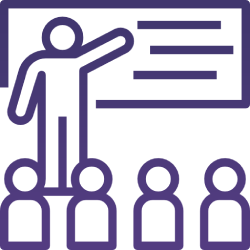After our ISTQB® Acceptance Tester training course, you should be able to accomplish the following objectives:
For Business Analysts & Product Owners:
For Testers:
After our ISTQB® Acceptance Tester training course, you should be able to demonstrate your skills in the following areas:
Our ISTQB® Acceptance Tester training course is aimed at people who have already achieved a Foundation point in their careers in software testing and wish to develop further their expertise in Usability Testing.
Our ISTQB® Acceptance Tester training course includes the following:
The formal entry-level requirements for our ISTQB® Acceptance Tester training course are that you should hold an ISTQB® Foundation certificate.
Before our ISTQB® Acceptance Tester training course, you should have read the provided syllabus in preparation for the training course.
ISTQB® Acceptance Tester Examination:
To qualify as an internationally recognised Certified Foundation Acceptance Tester, you must successfully pass the exam:
Whenever you are ready for the next step in certification, here are the most common follow on courses after the ISTQB® Acceptance Tester training course.
Founded in 2002, ISTQB® (International Software Testing Qualifications Board) is a not-for-profit association comprising 47 national boards (including the UKTB) covering 71 countries worldwide.
ISTQB® has defined the Advanced certification as part of their ‘Certified Tester’ scheme that, with over 240,000 certifications, has become the de-facto worldwide standard for software testing qualifications.

All of our trainers have achieved exceptionally high delegate pass rates for accredited examinations for all our courses. We also offer complimentary pre and post-course support for any questions you may have.

We try and be as flexible as we can and accommodate your needs. We can swap delegates at any time with no charge. We can also create bespoke content should this be required.

We specialise in IT Service and Project Management. All of our Trainers and Consultants have considerable years of hands-on experience in IT Service / Project Management, working across a wide number of industry sectors.

Our training, sales and admin staff are all professional, helpful, friendly and approachable. We believe in providing excellent customer service. You will always have a dedicated friendly Account Manager
INFORMATION
There are currently no course dates that match your selected filter options. Please try another filter or contact one of our dedicated account managers on +44(0)1539 736 828 to discuss your requirements. Thanks.
Our ISTQB® Acceptance Tester training course is delivered over two days.